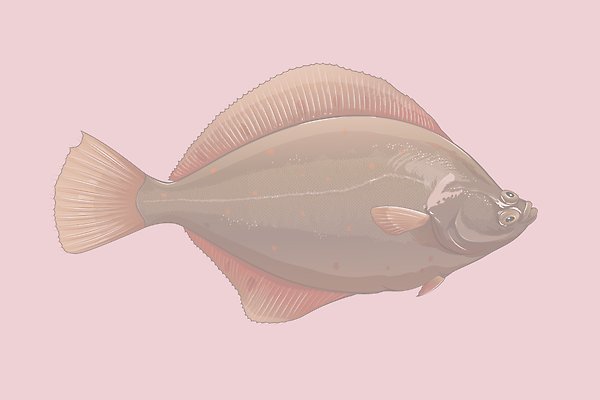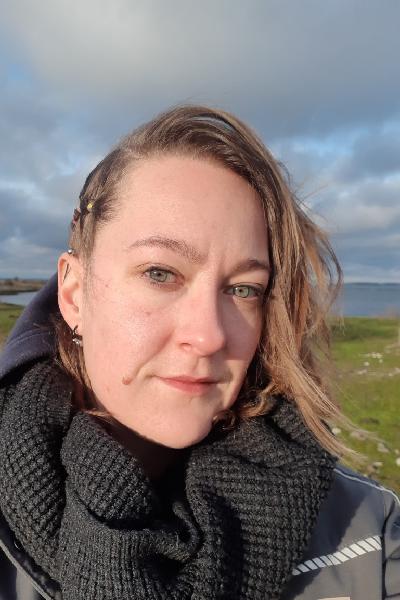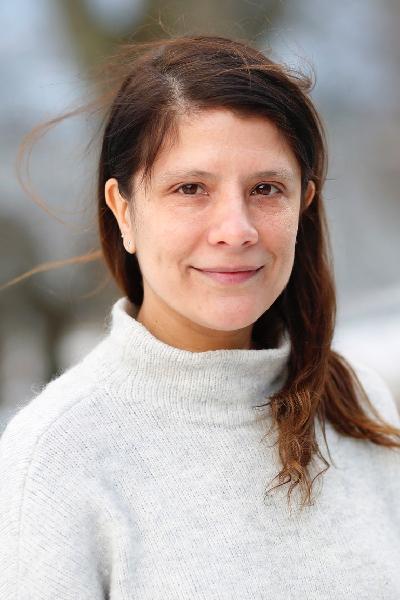Fiske- och kustzonsutveckling i ett ö-perspektiv: dåtid, nutid och framtid

Studier inom projektet
Beatrice Krooks forskar för att öka förståelsen om relationen mellan fisk och fiskare över tid och hitta lösningar för ett hållbart fritidsfiske.
Chiara D'Agata utforskar kustområden på Gotland för att bättre förstå relationen mellan havets resurser och användningen av dessa för människans välstånd.
About the project
The overall purpose of this transdisciplinary project is to combine coastal and fisheries development in a small island context in the past with the present to help develop sustainable ways forward. The project is conducted in collaboration between the Department of Archaeology and Ancient History and the Department of Earth Sciences at Uppsala University.
Understanding the long-term formation of coastal areas, changes in marine resources and management of marine resources, along with the present state and societal understanding of coastal resources and resource use, is crucial for the protection and restoration of coastal zones and associated marine resources in the future. Based on the knowledge of these long-term dynamics, the project aims to facilitate strategic, evidence-based decision-making and management for effective sustainable coastal and fisheries development that balances the needs of people and planet now and in the future.
Beatrice Krooks
The aim of my Ph.D.-research is to increase our understanding of the relations between fish and fishermen on a local and global scale over time by analyzing spatiotemporal accumulated archaeological fishbone assemblages on and around Gotland. By identifying core factors, like species, size distribution, butchery patterns and relative abundance in the assemblage and correlating it with the relation to shoreline displacement, fishing gear and fishing techniques, the evolution of fishery practices of Gotland can be brought to light. Recreating parts of the fishing land- and seascapes of the past will enable us to create new ways of developing and improving present-day sustainable fishery in the Baltic Sea.
The research will also include a significant amount of fieldwork, which will be undertaken to highlight the preservation of fish remains on Gotland; different excavations methods will be tried out in different weather conditions to better understand the bias within the analyzed material. Quantification of the fishbone assemblage will identify the species targeted throughout time, while changes in size distribution can indicate overfishing or changes within the habitat of the fish.
In addition, the research will include a technical component around Big Data analytics: Synthesizing results on marine resource variability and use obtained in my research and with climate change variables on Gotland and other islands in the Baltic Sea could give further insights to the drivers in human-environmental relationships. Additionally the project aims to create a transdisciplinary foundation and methods for applying what we can learn from the past to improve how we act in the future, creating sustainable fishing practices on Gotland, the Baltic Sea and the world.
About me
I’m an Osteoarchaeologist, with an in-depth specialization in fish remains, discussing and researching their assemblage in relation to seasonality of catch, shipping routes and dietary practices. While furthering my scientific research over the past years, I was also able to gain extensive experience in field archaeology all over the region of Franconia, Germany. During my time there, I’ve gained insight into taphonomical aspects, as well excavation techniques, and their effects on the archaeological assemblage. My time in Germany has also allowed me the opportunity to gain theoretical and practical expertise on archaeological sites spanning different ages and backgrounds, from Neolithic settlements to the Second World War.
Supervisors
- Helene Martinsson Wallin, Department of Archaeology and Ancient History
- Lina Mtwana Nordlund, Department of Earth Sciences
- Adam Boetius, Historical Osteology, Lund Unversity
Beatrice Krooks

Doktorand vid Institutionen för arkeologi och antik historia, Arkeologi
Chiara D'Agata
For my PhD, I am focusing on sustainable fisheries and coastal development from an island perspective. The overall aim of my project is to expand our understanding of coastal habitats, and in particular shallow water bays, their role in supporting healthy fisheries, and the factors influencing the broader social-ecological system, to identify challenges and opportunities for sustainability.
I am adopting a multidisciplinary approach, combining ecological surveys with interview studies with stakeholders, to investigate the main social and ecological factors at play in coastal development and fisheries.
My work runs in collaboration with a PhD student from the department of Archaeology and Ancient History at Uppsala University, Beatrice Krooks. Together we investigate how human responses to past challenges and environmental conditions can inform us on the present and help us developing adaptive strategies for a sustainable use of coastal resources.
My research group is led by Associate Professor Lina Mtwana Nordlund and include Sieglind Wallner Hahn, Johann Stiepani, Linda Eggertsen, and Adrianus Both. Our group focuses on sustainable coastal development, fisheries management, and seagrass and other coastal habitats functionality and conservation, both in the Baltic Sea and in tropical marine systems.
About me
I am a marine ecologist with a focus on marine ecosystem structure, biodiversity, the interactions between humans and coastal habitats, and finding ways to promote a sustainable use of marine resources. I obtained a BSc in Zoology from University College Cork, Ireland, followed by a MSc in Marine Biology from Stockholm University, Sweden. For my master’s thesis I investigated how different social and ecological factors shape small-scale fisheries in Mozambique, combining semi-structured interviews with data from ecological surveys and habitat mapping. After my graduation I worked as a research and field assistant at Stockholm University and for private consultancy firms, focusing primarily on Baltic ecology and environmental monitoring of fresh-r and marine waters. In 2017 I joined the Baltic National Monitoring Program of vegetated bottoms, where I worked until 2020.
Supervisors
- Lina Mtwana Nordlund, Department of Earth Sciences
- Helene Martinsson Wallin, Department of Archaeology and Ancient History
Chiara D'Agata

Doktorand vid Institutionen för geovetenskaper, Naturresurser och Hållbar utveckling
